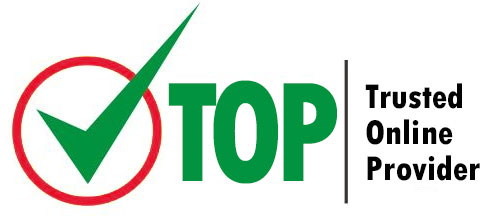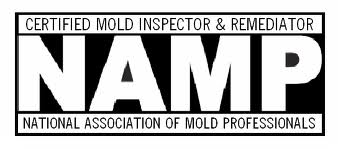All of our courses are
- State Approved
- OSHA accepted
- EPA Compliant
Many trained workers and professionals are going to be needed in the cleanup and restoration of Houston and the surrounding areas after Hurricane Harvey's devastation and flooding. Now is the time to get the appropriate certifications and training necessary to work the disaster area.
Be Prepared to Work !
In the Hurricane Harvey aftermath, as in all disaster areas, federal government entities like EPA, FEMA and OSHA have strict regulations on who can work in hazardous areas. Get your required training and/or certifications today and be ready to work!
AUSTIN, Texas –(excerpts from recent articles)
"...Jobs posted recently pay between $14 and $34 per hour. Some of the jobs include: administrative support assistant, civil engineer, communications specialist, construction cost estimator, courier, crisis counselor, customer service specialist, environmental specialist, floodplain management specialist, graphics specialist, hazard mitigation outreach specialist, historic preservation specialist, registered nurse and voluntary agency liaison, among others."
"...In Texas, Houston is considering a 50-percent increase in pay for haulers and Harris County, which encompasses the city, is also offering incentives to recruit more trucks."
"...Construction laborers may be unskilled, but they're generally better paid than most unskilled workers. As construction contractors migrated to the most storm-damaged areas after Katrina, the demand for construction labor drove wages up.
General clean-up laborers are also in high demand immediately. The work may be as unglamorous as shoveling the debris out of storm drains, but it can pay well.
Site guards are also needed. If you've worked as a guard before and have a good recommendation or two, you'll quickly find employment after a big storm."
Needed:
- Environmental Auditors
- Electricians
- Plumbers
- Heavy equipment operators
- Environmental Specialists
- Civil and structural engineers
- Drivers with commercial licenses
- Carpenters
DISASTER RELIEF TRAINING
Texas All Lines Insurance Adjuster License 40 hr
NAMP Mold Inspector Certification 6 hrs
OSHA Basic Safety Orientation (GI) 30 hrs
OSHA Electrical Safety 30 hrs
Hazwoper 40 Plus GHS Hazardous Communication 41 hrs
Hazwoper 24 Plus GHS Hazardous Communication 25 hrs
Certified Environmental Specialist 24 hrs
ISO 14001:2004 - Overview and Implementation 6* hrs
ISO 14001:2004 Env Mgt Sys Certified Auditor Training 6* hrs
ISO 14001:2015 EMS Lead Auditor Training 8* hrs
ISO 14001:2015 Management Overview 2* hrs
OSHA Driver Safety Course for Cars, Vans & Small Trucks 6* hrs
OSHA Driver Safety Course for Large Trucks & Buses 4* hrs
Confined Space Entry Training for Construction 8hrs
Confined Space Entry Training for Gen Industry
Environmental Specialist + Hazwoper 40
RCRA 8 Hour Refresher 8* hrs
RCRA in Day-to-Day Operations 2* hrs
RCRA: What the Law Requires 4* hrs
Stormwater Discharges and Permits in Construction 2* hrs

10 Horas Construcción Seguridad Orientación 10* hrs SPANISH
30 Horas Construcción Seguridad Orientación 30* hrs SPANISH
Requirements for Environmental Health and Safety (EHS) Professionals
Making a Safe Work Environment
Your business needs to keep its employees safe.But what does this mean, and what does it require? As an Environmental Health and Safety (EHS) professional, you are responsible for customizing a safety program for your place of business. In doing so, you’ll take into account anything and everything that impacts employee safety. Successful EHS programs include measures to address just about every aspect of the work environment. You’ve got to think about ergonomics, air quality, sound levels—indeed, anything that impacts the health and well-being of employees. Training and inspection preparation aren’t just about teaching employees the rules. Safety violations happen even when workers know the rules and are aware of the penalties for breaking them. What they really need to understand are the underlying reasons for the rules.
What is EHS?
Environmental Health and Safety (EHS) departments in corporations and government agencies might develop ways to deal with waste, comply with environmental regulations, and reduce the company’s (or agency’s) carbon footprint. But the most common responsibility is to develop a safety program. The program has to minimize the risk of injury in the workplace in accordance with governmental regulations.
Where do these regulations come from?
Global EHS guidelines are established by the International Finance Corporation (IFC), the private sector lending arm of the World Bank Group. U.S. organizations are governed by EHS regulations found in Code of Federal Regulations. These regulations are also called Safety, Health and Environment (SHE) regulations, sometimes written as HES or HSE.The Occupational Safety and Health Administration (OSHA) is the federal government’s workplace safety policing agency. OSHA assures safe and healthful working conditions by setting standards and providing training, outreach, education and assistance. The training and inspection requirements we’ll be talking about are primarily OSHA requirements.
WE WELCOME CORPORATE ACCOUNTS
Online SchoolRoom (in partnership with 360training) is a market leading provider of EPA compliance and workforce e-Learning solutions. We, along with over 1500 e-learning partners, have trained more than 3 million users worldwide and were ranked in 2006 as one of the top 6 growing technology companies. Over the years we have had students from
- Trammell Crow
- Guaranty Bank
- Duke Energy
- IBC
Environmental certification, as well as all Safety Certifications, is a form of environmental regulation and development where a company can voluntarily choose to comply with predefined processes or objectives set forth by the certification service.
The primary motivations for many companies who choose to implement Environmental Certification schemes are to provide an ethical product for the consumers, increase sustainable development, improve the image of the company, gain a better relationship with stakeholders and to make a higher profit.
Email us to set up corporate accounts
Hurricane Disaster Relief
Job Training







